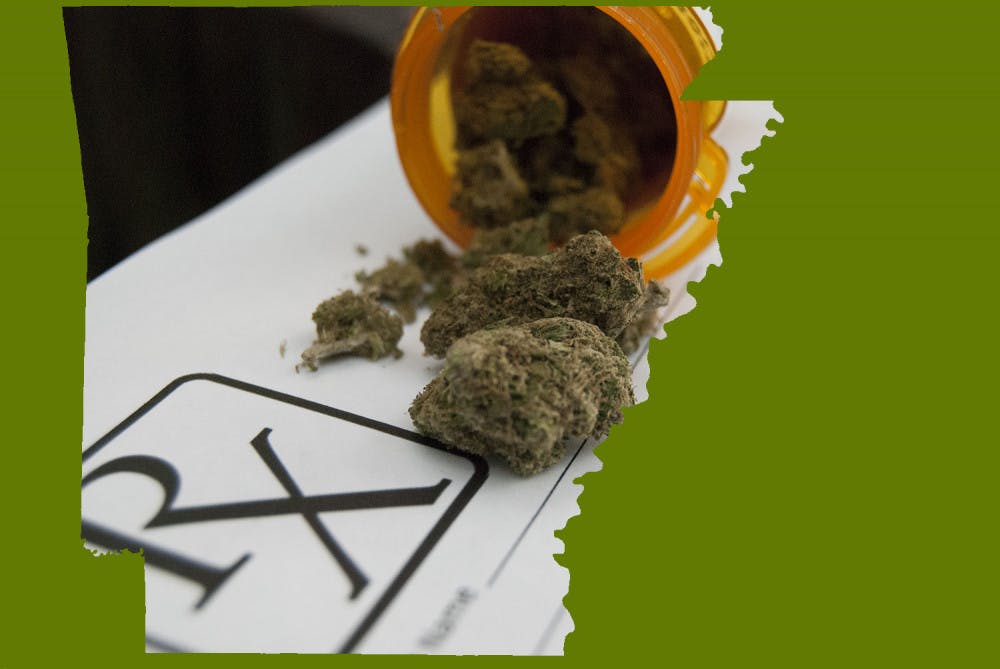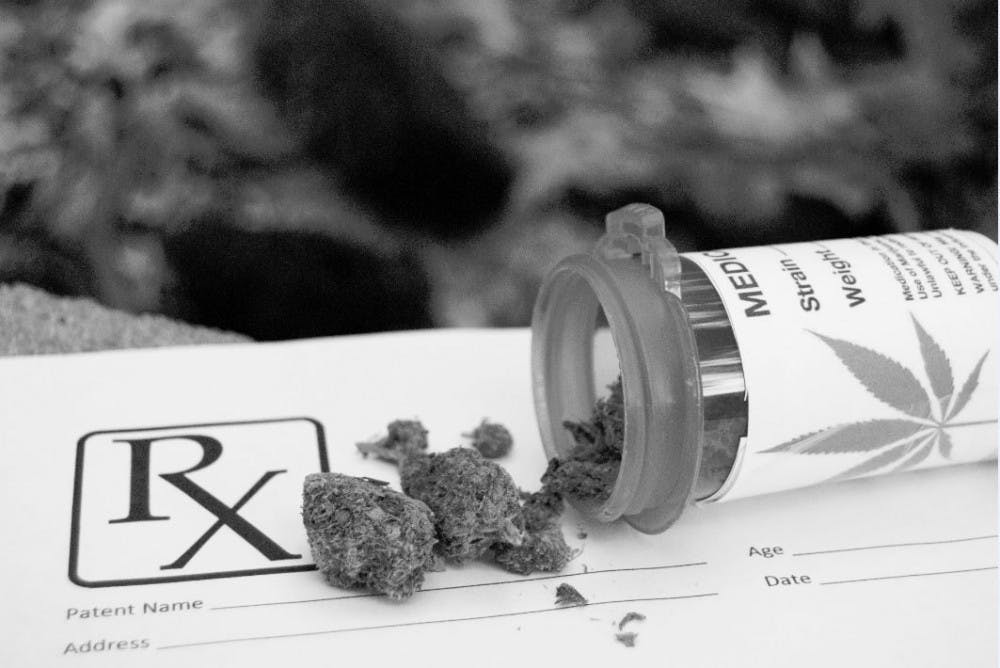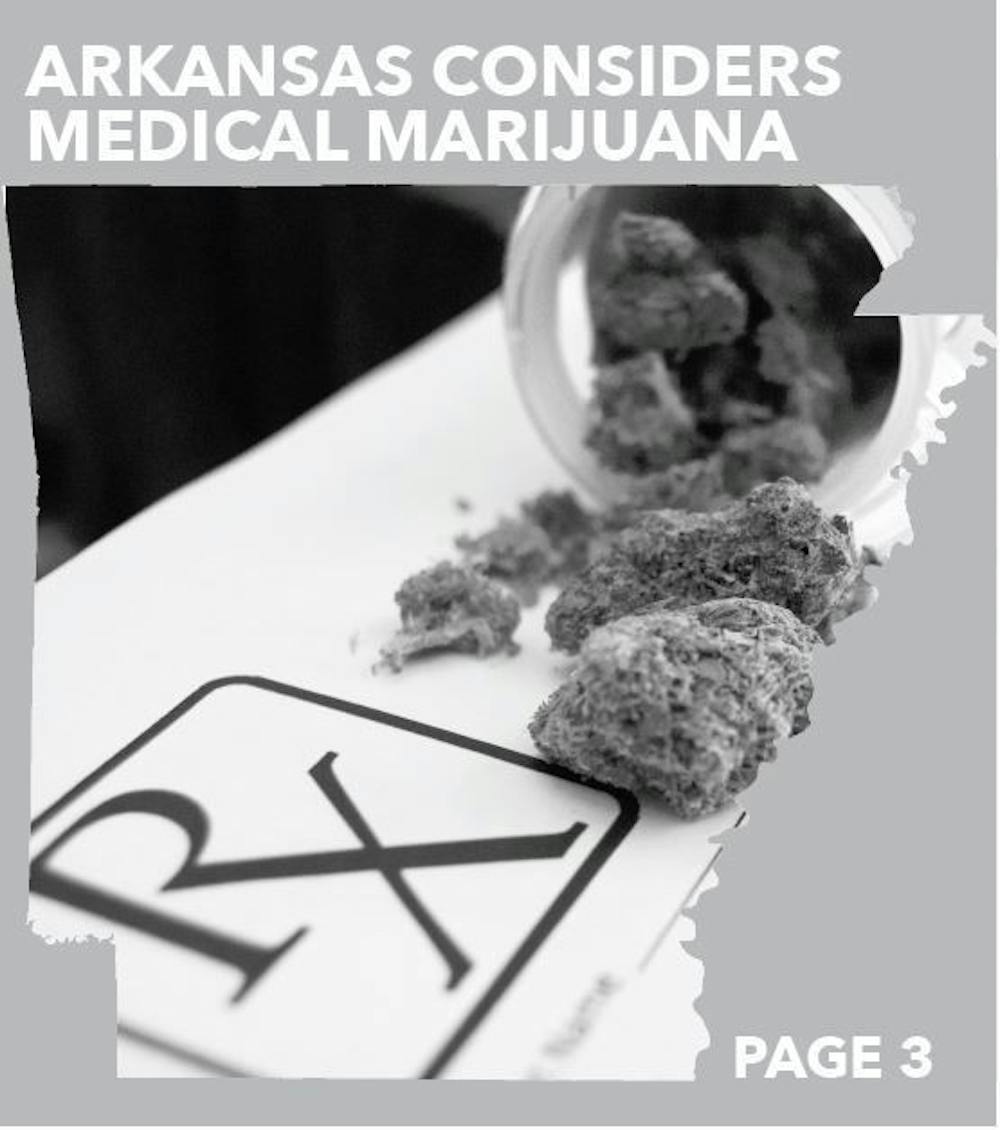
Arkansas residents will vote on Nov. 8 for the second time in four years about legalizing marijuana for medicinal purposes, a change supported by 60 percent of all Americans according to the latest statistic in a Gallup poll released Oct. 2016.
Florida, Montana and North Dakota will be joining Arkansas in the vote to legalize medical marijuana, while Arizona, California, Maine, Massachusetts and Nevada will vote to expand their medical use laws to full recreational legalization.
“People leaving Arkansas to get marijuana for medicinal purposes initiated the proposal of the measure,†Melissa Fults, campaign director for Arkansans for Compassionate Care, said.
Arkansans for Compassionate Care are the sponsors of the Arkansas Medical Cannabis Act to legalize medical marijuana and are overseen by the Arkansas Department of Health.
“We have done as much as we can to protect the patients and the community,†Fults said. Fults is also running for State Representative in District 27.
The Arkansas initiative includes a maximum limit on the cost of licenses and a plan to help low-income patients by pooling 1 percent of all dispensaries’ gross profits into a healthcare fund.
Fults said studies have shown promising results for using marijuana to treat certain conditions such as migraines, ADD, ADHD, cancer, Crohn’s, Lupus, Multiple Sclerosis and Parkinson’s disease.
Of the 1600 volunteers for Arkansans for Compassionate Care, 95 percent are either patients or have family members who are patients who use medical marijuana.
Easier access to marijuana may make it harder for Arkansas business owners to find drug-free workers said Arkansas Lt. Gov. Tim Griffin in a statement released on Sept. 26.
“Growing sustainable high-tech and manufacturing jobs being able to compete with other states’ economies might be undercut by a lack of workers who can pass drug tests,†Griffin said.Â
Gary Wheeler, chief medical officer for the Arkansas Department of Health, said the public should not be able to make decisions on drugs outside of the FDA’s jurisdiction.
“The point of the FDA is to make sure that consumers have available to them medications that are safe and effective,†Wheeler said.
Wheeler does not rule out that some strains of marijuana could have medical benefits, but he said it is a tricky balance to recreate a specific strain of marijuana for all medical uses.
“My observation is that anyone who wants marijuana can get it,†Wheeler said.
Marijuana is still illegal in the state of Tennessee, but was partially decriminalized in both Nashville and Memphis earlier this year. An ordinance passed on Oct. 4 changed the civil punishment in Memphis to a $50 fine, where courts may waive the fine if the individual completes community service.
Possession of less than one-half ounce of marijuana in Tennessee is criminalized at the state level as a class A misdemeanor and the penalty for possession is a fine of $2500 along with up to a year in jail. Police arrested 3,800 individuals for either misdemeanor marijuana possession or misdemeanor marijuana possession with paraphernalia in 2015, as claimed by data from the Shelby County Clerk.
It cost the state of Tennessee almost $43 million to enforce 42 percent of all drug arrests, which were for less than one-half ounce of marijuana, as indicated by budget data from 2010.
“In places where medical marijuana is legal, such as California, the act of legalizing it for medicinal use was just a step towards legalizing it for recreational use,†Wheeler said.
Â







